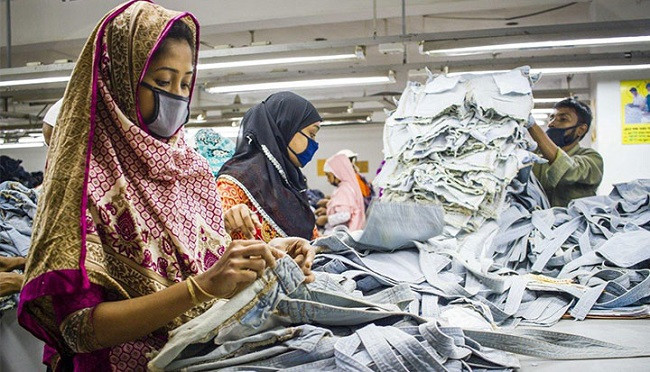Export orders from Western countries have fallen due to inflationary pressure for more than a year. Consequently; Garment exporters have to run factories with at least 20 percent lower capacity. Along with that, the recent political violence and disturbances in the country have caused concern among them.
Exporters expected export orders to pick up as inflationary pressures eased in Europe and the US. But, the ongoing political instability in the country has now become a new threat to business. This can turn away many international buyers who are skeptical about receiving their product shipments on time. They fear that it will have a negative impact on the overall economy.

Figure: Political unrest and falling orders worry RMG exporters.
Western buyers are usually more cautious about placing orders in third world countries before national elections, an exporter said. He said that some US buyers had warned him about the possibility of political violence in Bangladesh in the run-up to the national elections about 4 months ago. So they are ordering cautiously.
Despite isolated incidents of political violence last February and May – following the announcement of the new US visa policy on May 24 – the political situation in the country remained calm. However, the situation changed after One of the largest political party, BNP declare its one point demand to topple the current government and the establishment of a non-partisan election-time government. At this stage, a series of rallies and processions started from both parties and several clashes also took place.
In this situation, highlighting the relationship between the country’s political environment and the state of the overall economy, the president of the Federation of Bangladesh Industries and Chambers of Commerce (FBCCI) Md. Jasimuddin commented, “If the political environment is not good, the overall situation of the country including business and trade will also suffer.”
Highlighting the massive transformation and progress of Bangladesh’s economy in the last decade, he expressed the fear that political instability will have a massive detrimental effect on the economy.
Syed Mohammad Tanveer, Vice President of Chittagong Chamber of Commerce and Industry and Managing Director of Pacific Jeans Group said, “We want to maintain the smooth, uninterrupted operation of our production and export shipments to sustain the economic growth of the country.”
He said, “We strongly request all the political parties of the country not to engage in any activities that tarnish the image of Bangladesh abroad.”
Such concern has also been expressed by the Executive President of Bangladesh Knitwear Manufacturers and Exporters Association (BKMEA) Mohammad Hatem. According to him, exports and economy have been able to develop due to political stability in the country for the past few years.
He said that during every national election, work orders to garment exporters decrease. Besides, the ongoing Russia-Ukraine war is also hurting their business overall.
“If political violence continues in the country, then international buyers will be apprehensive, which will not be favorable for our business at all. Garment exporters will not be able to overcome this kind of trauma along with the ongoing challenges,” he added.
Ahead of the national elections in Bangladesh, many buyers may turn to neighboring i.e. India to secure their supply chain amid fears of disruption. Because, all buyers want to procure products from a stable country. In addition, US sanctions and visa policies on certain individuals may force them to be more cautious. In general, the US policy on these issues is followed by the European Union and Canada.
Economists have also expressed fears about the spread of political instability in Bangladesh centered on the upcoming national elections.
According to Professor Mustafizur Rahman, Honorary Fellow of Center for Policy Dialogue (CPD), the country is now passing through a transitional period as various local and global adversities affect economic activities.
He emphasized on the democratic right of all political parties to hold meetings and on transparency, accountability and good governance. At the same time, he stressed the need to protect the production process and the economy from all negative activities.
Notably, the country’s exports reached $55.55 billion by achieving an annual growth of 6.67 percent in the financial year 2022-23 amid various challenges. The main contributor behind this was the strong performance of the apparel sector (84 percent of the total export). However, export earnings fell short of the ambitious target of $58 billion by 4.28 percent due to slowdown in global demand, economic instability, geopolitical crisis and inflationary pressures in Western economies.
















